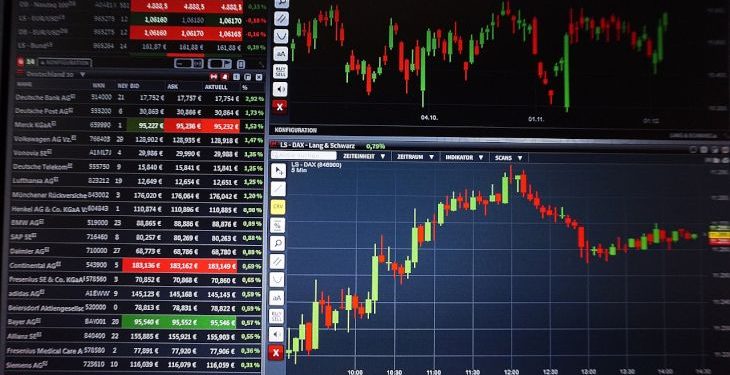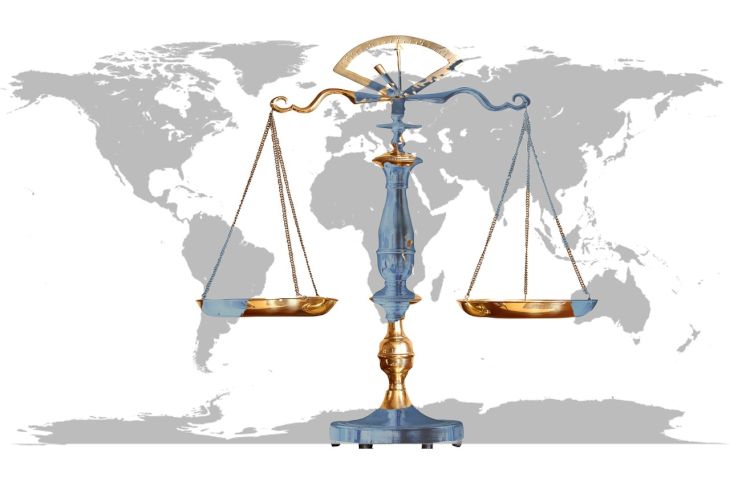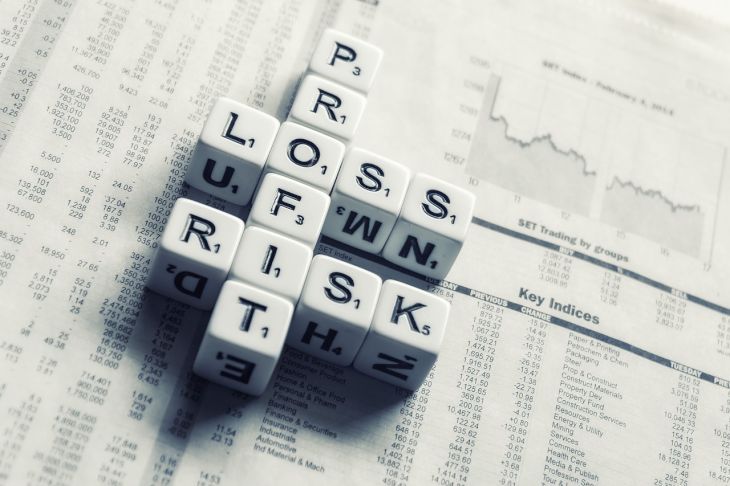Forex refers to “foreign exchange” or trading currencies of different countries against one another. The Forex market is the most liquid and the biggest financial market in the world, which involves the daily exchange of currencies worth more than $4 trillion. Forex trading in India cannot be done at any land-based location as the only online forex trading is available.
Unlike the stock market which has opening and closing times, the forex market remains open throughout the day as traders trade currencies across all time zones, five days of the week.
Different Ways to Trade Forex
Institutions and individuals trade Forex in different ways, and the details are as follows:
- Spot Market – The spot market gets the biggest volume of trades. In fact, the forward market and futures market are based on the spot market, which happens to be the underlying asset here.
Traders buy and sell currencies at the current price in the spot market. A variety of factors such as rate of interest, predictions of the currency’s future performance, political situations, and so on determine the current price of a currency.
The spot market is called so because the trading is done “on the spot.” This market is simple and liquid, available round the clock, and features tight spreads.
- Forward Market – In the forward market, contracts are traded. These contracts involve claims to specific currencies, dates on which the trades will be settled, and price per unit. The traders who decide to buy or sell currencies make these contracts.
- Forex Options – Options are financial instruments that give traders the option to purchase or sell assets at pre-determined prices on the date on which the option expires. Options are traded on well-regulated exchanges, but the market is not available round the clock. The market liquidity is also not as good as the spot market or the futures market.
- ETFs – ETFs, also known as exchange traded funds, are the newest financial products in the world of Forex trading. ETFs expose traders to a group of currencies or a single currency. Financial institutions that purchase and hold various currencies in funds create and manage ETFs.
ETFs function just like stocks. This means that traders can purchase and trade ETFs just like stocks. Unfortunately, the ETF market isn’t available round the clock and you have to pay trading commissions on them along with various transactions costs.
- Futures Market – The futures market is also based on contracts, which involve dates of trade settlement and standard size. The contracts include details such as number of units, delivery dates, settlement dates, minimum price increments, and so on.
To put it very briefly, futures refer to contracts to purchase or sell currencies on a date in the future at a pre-determined price.
Futures contract trading is done on centralized exchanges. Since they are standardized, the futures market is well-regulated and transparent. You can easily gain access to the transaction details and the price.
Brief Guide to Trading Forex
If you have never traded Forex before, the following guide will be of great help to you.
Step #1: Select a Currency Pair.
Since most top-rated online Forex brokers offer several currency pairs, you can easily decide which currency pair you would like to trade. You can also use the broker’s research tools to identify opportunities that fit your style of trading.
Right at the beginning, you should implement risk management techniques. We suggest that you first gain a thorough understanding of the price volatility associated with your selected currency pair.
Step #2: Choose a Way to Trade Forex
We discussed the different ways to trade Forex in the above section. Forex brokers offer all or more of the above-mentioned types of trading. The amount you have to invest depends on the type of trade you select.
Step #3: Decide Whether You Would Like to Buy or Sell.
Once of the currencies in your currency pair is a base currency and the other is a quote currency. The currency to the left is the base currency and the currency to the right is the quote currency.
If you feel that the base currency will become more valuable than the quote currency, you have to buy. If you feel that the value of the base currency will fall, you have to sell.
Step #4: Add Orders to Your Trade
You can also add orders to your trade. These orders include limit orders and stop orders, which help you to minimize risks and lock in profits whenever your loss or profit targets have been met.
You do not have to add orders to your trade, but experts highly recommend that you do in order to minimize your risks and protect your profits from market volatility.
Stop loss orders enable you to exit a trade automatically if the price worsens and thus minimize your loss. Limit orders enable you to exit trades automatically if the price gets better and thus lock in your profits.
Step #5: Close Your Trade
To close your trade, you have to perform an action that is opposite to the action you performed while opening the trade.
For example, if you opened a trade by purchasing three CFDs, you have to sell three CFDs to close it. When you close your trade, your profit and loss will immediately reflect in your balance.
Getting Started
To get started with Forex trading, you must sign up with an online Forex broker. If you are a beginner to Forex trading in India, you will find it very difficult to identify a reputed online Forex broker on your own. This is where we can help you.
We have invested a great deal of time and energy in identifying, reviewing, and rating the best online Forex brokers in the industry. We suggest you go through our reviews and choose one of the online Forex brokers in our list to get started.
Once you have chosen your Forex broker, get started with a demo account. A demo account gives you the authentic online trading experience, but you don’t have to spend any real money when you are buying and closing trades. A demo account serves as a teaching tool for beginners to trading. You can use it to understand trading better. And once you gain the confidence you require to trade for real, you can open a live account.
Now is the time to deposit a small amount of money into your account. Avoid spending a huge amount of money to begin with. Instead, spend more time in getting educated at the online Forex broker. All the brokers we recommend to Indian traders offer free educational material in the form of video tutorials, one-to-one training, high-quality articles, free eBooks, webinars, and others. Use these free resources to gain a deeper and better understanding of Forex trading.
How We Choose Forex Brokers
We never select Forex brokers for Indian traders at random. Instead, we spend a lot of time in researching each broker before reviewing it and recommending it for Forex traders in India.
Here are a few criteria we consider while choosing an online broker:
- Security – We ensure that the broker is licensed and reputed. In fact, we never recommend signing up at unlicensed online Forex trading sites.
- Payment Options – We study the banking page well to make sure that Indian traders can easily use the payment methods listed.
- Trading Tools – We recommend only brokers that offer a wide range of high-quality trading tools such as news feeds, charting tools, and others to help you trade better.
- Customer Support – We test the customer support to make sure that they are prompt, friendly, and well-trained. We especially select brokers that offer customized support for Indian traders.
- Trading Platform – Our recommended Forex brokers offer sophisticated, but easy-to-use trading platforms. The buy and sell buttons are very clear, so you will hardly make any expensive mistakes while entering orders.
- Educational Material – We never recommend brokers that do not offer any free educational material. The best Forex brokers, in our opinion, are those that not only provide a safe and secure online trading platform, but also teach traders how to make profitable trades.
- Demo Account – To make it to our list of recommended brokers, an online Forex broker must offer a demo account.
Is Forex Trading Legal in India?
Indians can trade Forex with the Indian exchanges NSE, MCX-SX, and BSE. These exchanges offer trading in currency pairs such as GBP/INR, USD/INR, EUR/INR, and JPY/INR. This means that, if you stick to Indian exchanges, you do not get access to a wide range of currency pairs.
India sees the decentralized global Forex market as a threat to its sovereignty. For this reason, the government of India has limited Forex trading to a great extent.
On Dec 10, 2015, the Reserve Bank of India permitted exchanges to offer options and futures contracts in three currency pairs: GBP/USD, EUR/USD, and USD/JPY.
Trading on other currency pairs, except those permitted by the RBI, is, therefore, illegal in India. In fact, it is a non-bailable offence.
It is now time to give a direct answer to the question: “How to trade currency pairs legally in India? The first step would be to create an account with a Forex broker who has received a license from the Securities Exchange Board of India (SEBI). You can open a personal account or a business account. And having opened an account, you can go ahead, and trade currency pairs permitted by the RBI.
If you are still confused about the legalities of Forex trading in India, we suggest talking to a lawyer who understands such matters and can guide you better.
Forex Trading Risks – How to Understand and Manage Risks
You should never trade currency pairs without first learning how to manage the various risks associated with Forex trading. Needless to say, you want to trade Forex because you want to make a profit. And if you want to make a profit, you must understand the basics of risk management.
Most traders plunge headlong into Forex trading without learning how to handle potential losses. Such traders are actually “gambling” away their hard-earned money, not making a wise investment decision.
Use the following tips to manage your risks:
- Stop Loss – As previously mentioned, you can add a stop loss order to your trade. This enables you to minimize your losses when a trade is not moving in your favor.
- Leverage – Be careful when you use leverage because it is involved with high risks. While leverage can help you make huge profits, it can also lead to huge losses.
- Control Your Emotions – You have to be able to control your emotions and stay calm, cool, and collected while trading Forex. When you lose your cool, you tend to make the wrong decisions.
- Get Educated – Never stop learning about Forex trading because there is always a lot to learn. In fact, you can never stop learning new things as a trader. You will find plenty of free educational material at top online Forex brokers.
- Avoid Investing Everything in Forex – Forex should be just one of the eggs in your basket, a part of your investment portfolio. Avoid putting all your money in Forex trading.
- Experiment with Social Trading – If you feel that you are too new to trading to make wise decisions, try social trading. This feature allows you to copy the trades of successful traders and thus boost your chances of making a profit.
Conclusion
Now that you understand more about Forex trading in India and the various restrictions associated with it, we suggest that you get started. Check out our reviews of top online Forex brokers such as IQ Option and Olymp Trade.
We recommend getting started with a demo account. Spend several weeks just learning about Forex trading before you start investing money in it. Once you gain some confidence, go ahead and start trading.





